Concordia University’s Fair Trade Campus Initiatives
A Fair Trade Campus since 2016, Concordia showcases that sustainable practices go hand-in-hand with the academic realm, instilling core values in younger generations. We met with Oliver De Volpi, Food Services Manager at Hospitality Concordia, to talk about the successes, challenges, and impactful initiatives that have come to define the Montreal university as a sustainability champion in Canada.
Thank you for joining us today, Oliver! Could you start by sharing a bit about your role at Concordia?
My role as Food Services Manager at Hospitality Concordia is vast, covering everything from the dining hall to retail and vending machines, plus all 22 caterers that come to campus. The residential dining program is also a huge part of my job — we have 1000 students who live here at Concordia and they eat 3 meals a day, seven days a week, during the school year.
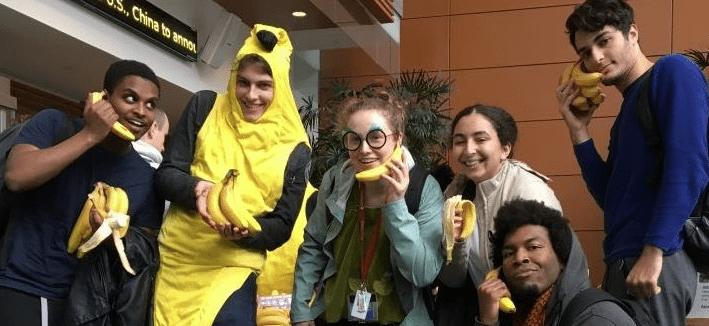
Is engagement a constant challenge with an ever-changing student body?
It’s definitely a battle. Every year, a quarter of the Concordia population is new — we’re always starting from zero with our resident students. But the younger generation is happy to hear information about what they’re supporting and what Fairtrade means. Nobody complains to us about the small price difference when it comes to coffee, tea, chocolate, or anything else when they see the Fairtrade label. In fact, our vending company was telling me that the Fairtrade chocolate bar is the third best-seller in the machines even though it’s more expensive than the other products in there!
We also partner with Camino and purchase Fairtrade cocoa powder, sugar, and chocolate to make Fairtrade brownies and cookies. The students love the Fairtrade baked goods; we can sell a few hundred of them in about an hour. Yes, they taste great, but I also think that everyone likes the idea of eating Fairtrade baked goods.
More and more, I think students have a knowledge of the label and the Fairtrade movement before they even get here and I think it’s a value that, once entrenched, just doesn’t ever leave you. Fairtrade is only going to grow as the product availability becomes even better.
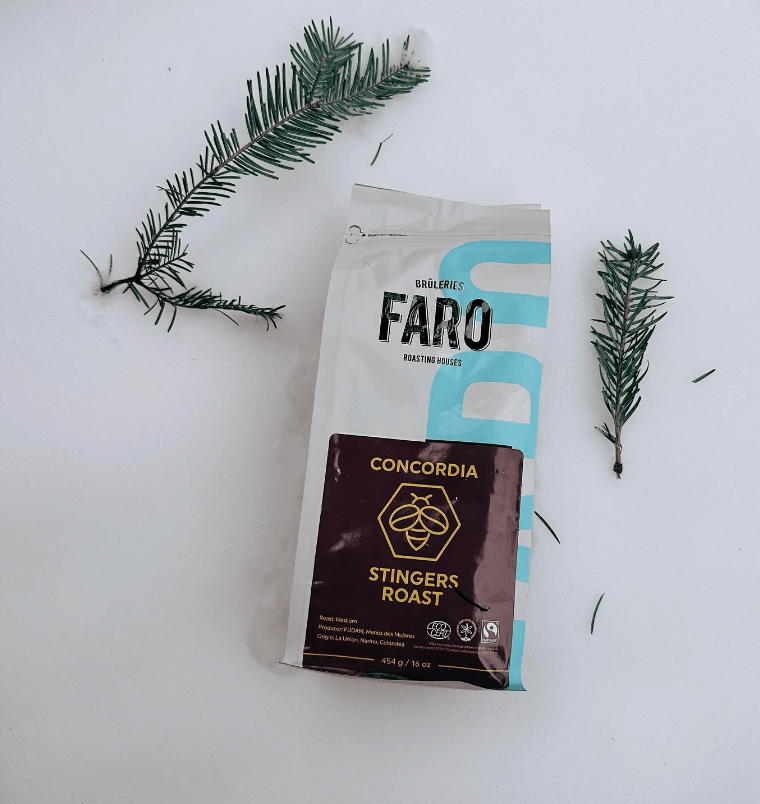
Can you tell us a little bit more about your Stingers Roast initiative?
We’ve created the Stingers Roast coffee, named after our athletic teams, to communicate the Fairtrade values to our student body. To produce it, we approached both Brûleries Faro and Cafe Imports saying we were looking for Fairtrade Organic beans and that we wanted to partner with a women-owned coffee co-op — women are often the ones farming, but yet are not reaping the benefits as so many farms are owned by men. The beans are then roasted on our behalf by Faro. The light and medium roasts of Stingers Roast are both available in all of our residences and much of our retail — many Concordia offices also now serve our Stingers Roast coffee on the daily.
How do you communicate about Fairtrade to the diverse Concordia community?
We have 50,000 students and almost 7000 staff members making up a sort of village inside Montreal. We have a lot of signage communicating about Fairtrade, but at some point, students become oblivious to it. So, we do two annual events; the first is Stingers Roast Day where we serve espresso, coffee, and cappuccinos in the lobby of one of our biggest atriums — people come by, have a coffee, and we explain the concept of Fairtrade to them. We even play some games and hand out some prizes! We probably have upwards of 1000 people interacting and learning with us at that event.
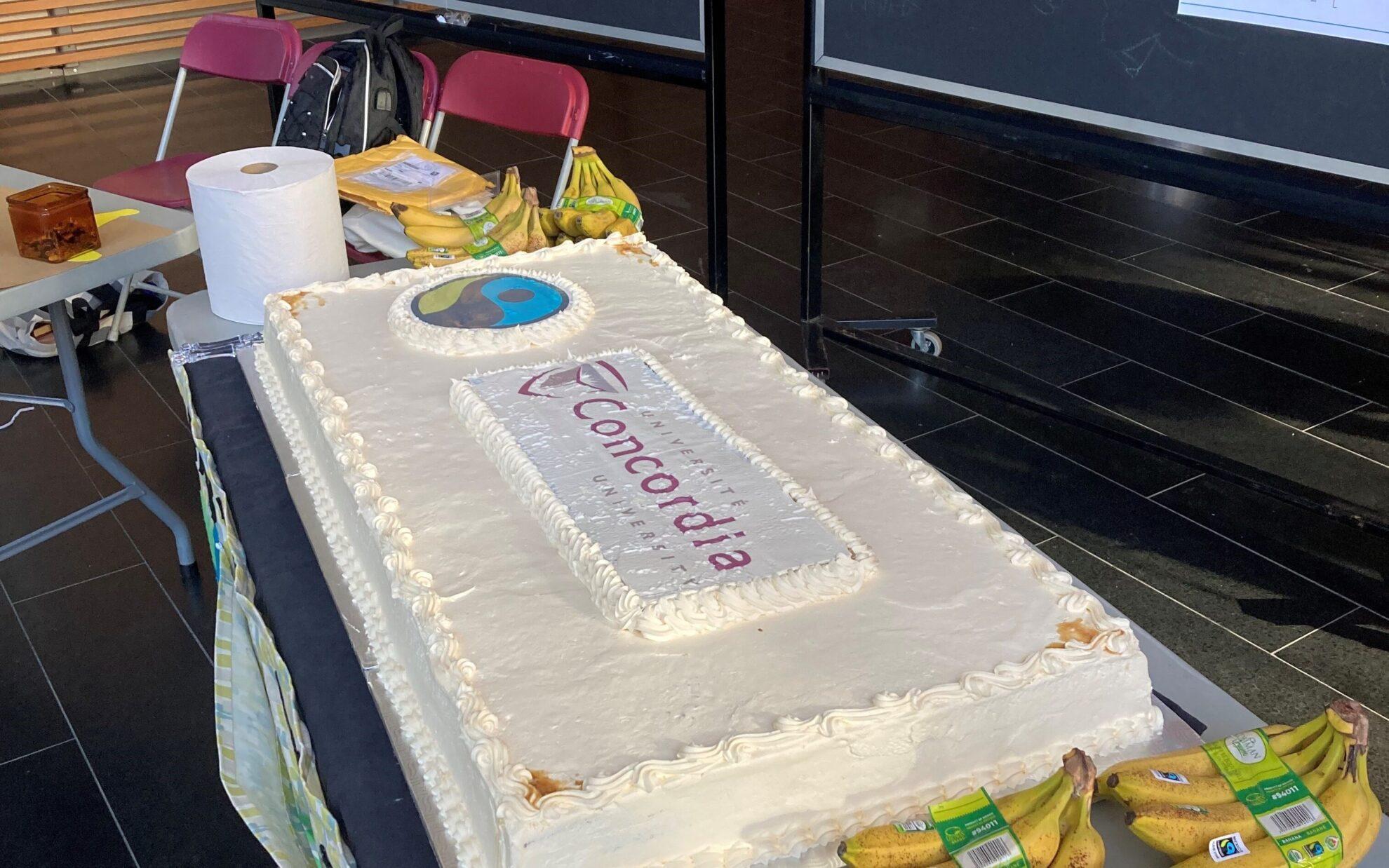
Our second annual event is banana-focused and takes place in the lobby of another atrium a few weeks later — we hand out Fairtrade bananas, but also cut into a 200-pound banana cake we’ve baked, a novelty that attracts people and allows us to start the conversation with them.
Our partner, Aramark, also helps us with initiatives. Amongst so many other things, they do Fairtrade Tuesday, where they bring a Fairtrade item to all of our cafés and people get a free Fairtrade coffee with purchase.
What are some of the internal challenges that come with being a Fair Trade Campus?
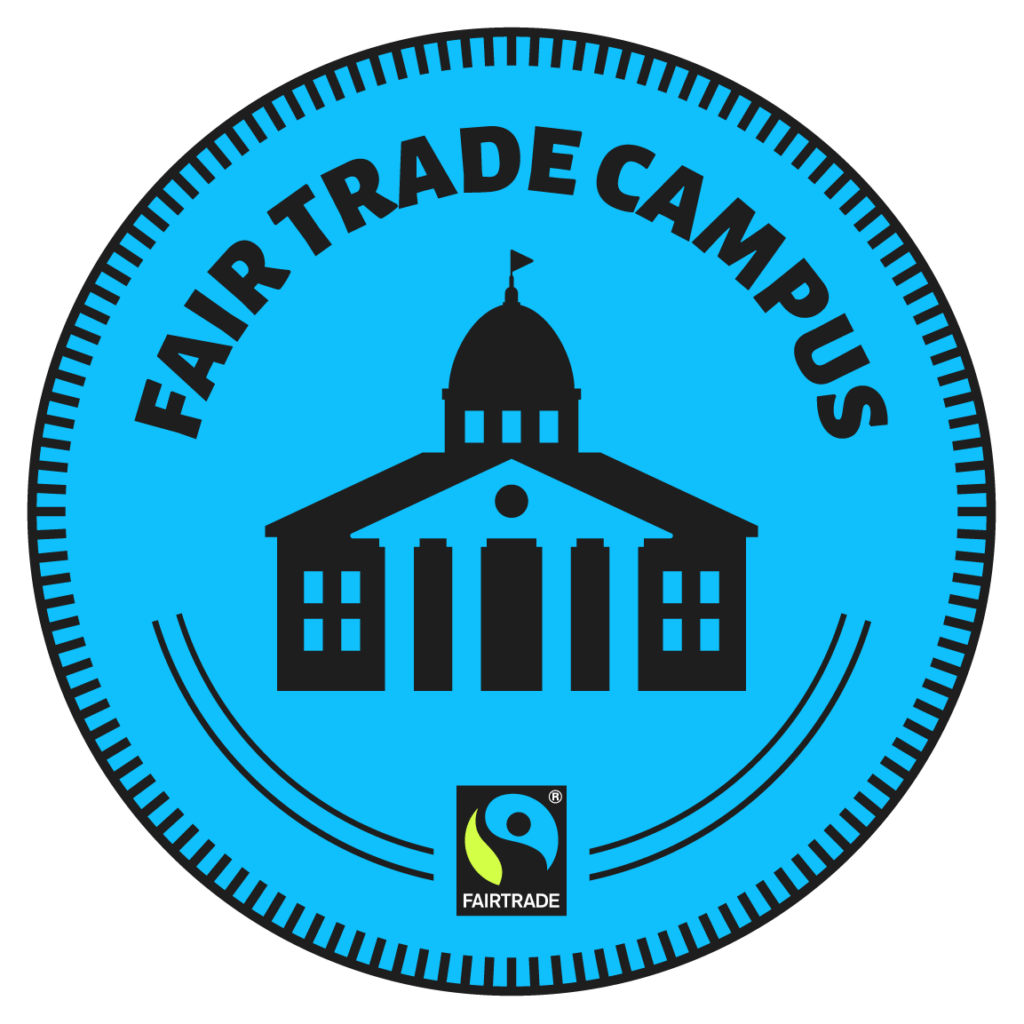
There’s a little price difference. Concordia started offering exclusively Fairtrade bananas about 6 years ago and they’re double the price, but double the price on something inexpensive to start with doesn’t create much of a challenge from a financial standpoint. But when we sell a Fairtrade banana on campus, we make sure that we’re taking the hit on it — if a conventional banana was sold for a dollar before, the Fairtrade banana is sold for a dollar now. We haven’t been able to figure out how to make the cost jump work for us for other snacks though, like dried mangoes for example.
Other challenges involve the ripening process of bananas or the times when one of our suppliers is out of a particular Fairtrade product we need. There needs to be good planning and a search for a few suppliers who can also provide comparable Fairtrade products — Fairtrade is clearly anchored in all of our food services contracts.
Concordia has a big campus with many tenants and hired caterers. Does that create challenges?
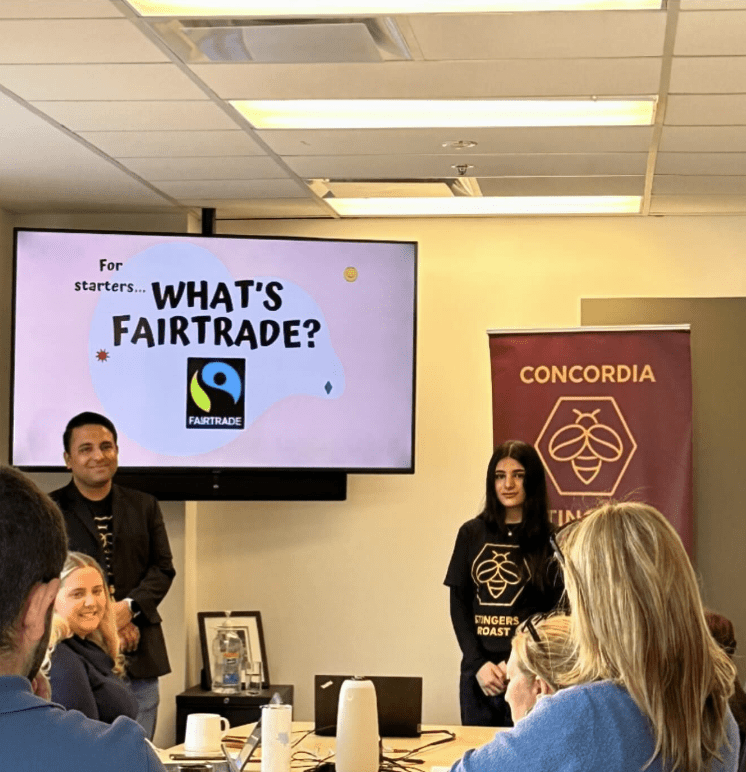
Yes. Some of our tenants don’t offer Fairtrade options, so we’ll be meeting with them in the coming months to introduce them to the concept of Fairtrade — we’re hoping they’ll consider adding a few offerings. We’re also currently in talks with some of our caterers who aren’t always offering Fairtrade sugar when they come to an event.
It’s almost impossible to track everything that’s going on on campus though, especially with so many offices brewing their own coffee with their own coffee makers. To try to remedy that particular situation, we’ve introduced a Stingers Roast Coffee Break initiative, where some of our Fairtrade ambassadors go visit Concordia offices with Fairtrade coffee and Fairtrade snacks in hand, taking a few minutes to present Stingers Roast and the Fairtrade system. We hope this awareness will at least help people make more sustainable choices in their everyday lives.
Do you think Concordia’s commitment to Fairtrade goes hand-in-hand with the university’s values?
Absolutely! When we started Stingers Roast, we followed the values that we thought were important to the campus. The university has a 2020 – 2025 sustainability action plan and getting to the silver Fair Trade Campus designation plays a big part in it.
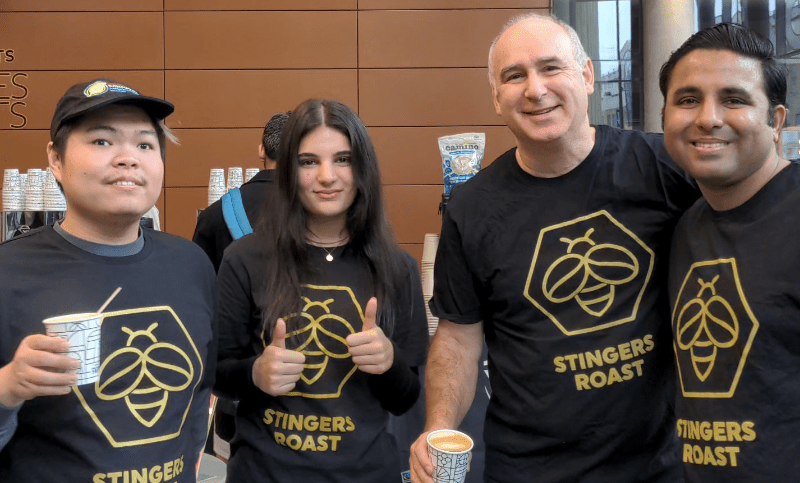
Any final advice for campuses and businesses who want to get their fair trade designation?
The designation may sound daunting, but Fairtrade Canada has been amazing. I’ve been involved with Fairtrade since 2011 and I honestly can’t think of a time when there wasn’t someone answering my phone call or email within a couple of hours. They’re committed and involved and I think that the first thing to do is to reach out and express your interest.
Most campuses are probably serving some Fairtrade coffee already. If not, then that’s the biggest step a campus needs to take — start serving Fairtrade products, specifically coffee, tea, and chocolate. Once you’ve done that, the next steps to get to that designation are quite easy.
All the big campuses across Canada are moving in this direction and once Fairtrade is anchored in, it’s anchored in for the long term. From a strategic business perspective, it feels almost selfish on our part to market our fair trade status, but it’s really such a win-win.
Concordia University’s commitment to ethical practices, sustainable sourcing, and community engagement underscores the positive impact such initiatives can have on both institutional culture and broader societal values.
Inspired by Concordia University’s Fairtrade commitment and sustainable journey? Contact us now to get started with your Fair Trade Campus or Workplace designation.